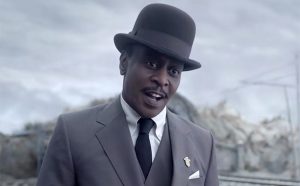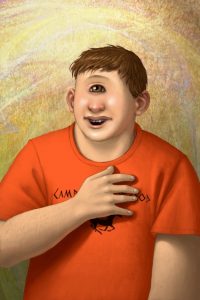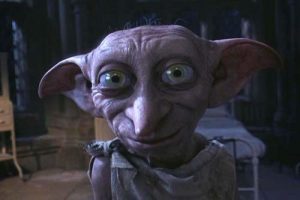The Art of the Minor Character: Showing Love for Those a Step Away from the Spotlight
Jonathan Smith // Blog Writer
We all admire the protagonists in series such as Percy Jackson & the Olympians and Harry Potter for their heroism. It’s easy to root for these major characters because they’re the central focus of the story, and we get to see all of their flaws as well as their successful endeavors. But there are still those who, in limited roles, assist—and occasionally hurt—said major characters in their journeys. Minor characters have the capacity to alter events in a story at pivotal times. They’re similar to Luigi from the Super Mario Bros. video games: We might get caught up in the action and forget about them from time to time, but we always love to see them attempt to save the day when the moment is bleak.
Upon considering my three favorite minor characters in literature, I’ve discovered that the line between major and minor characters is a grey area in most cases. Sometimes a character is prominent in one book of a series and is nowhere to be found in the first 400 pages of the next because he is off meeting angry giants (shout-out to Hagrid). For the purposes of this article, however, the minor character is defined as one who appears in a limited amount of scenes in a book, or who is not of central focus in the majority of books in a series. Nonetheless, there are many minor characters I needed to dock in order to create the following list.
3. Arthur Poe (A Series of Unfortunate Events by Lemony Snicket)
Arthur Poe is a banker who handles the will of the late parents of the three Baudelaire children. I will never forget the first introduction author Lemony Snicket gives of Mr. Poe, as Snicket depicts Mr. Poe as a man who coughs and uses his handkerchief every five seconds. He also makes allusions to Edgar Allan Poe, which works well given the dark nature of the series. Mr. Poe doesn’t help the Baudelaire children when they warn him of the danger of their new caretaker, Count Olaf, but Mr. Poe does make up for it by the end.
2. Tyson (Percy Jackson & The Olympians by Rick Riordan)
I’ve never related to a one-eyed man in quite the same way that I have with Tyson, a Cyclops and the half-brother of Percy. As soon as he was introduced in the second book of the series, his robotic, childlike way of speaking grasped my attention. Perhaps the main reason why I connected with him is because I’m a younger brother who, as a child, copied my brother’s actions whenever I got the opportunity, much like Tyson does with Percy. The fact that Tyson is always liable to make mistakes when he’s trying to help was also relatable, as I was rather clumsy as a kid.
 1. Dobby the Elf (Harry Potter by J.K. Rowling—SPOILER ALERT)
1. Dobby the Elf (Harry Potter by J.K. Rowling—SPOILER ALERT)
I’m about to begin the sixth book in the Harry Potter series, but I discovered just the other day while reading an essay in my nonfiction workshop that Dobby dies near the end of the series. I needed to take a step outside and go for a long walk. How could it be? He’s such a complex and revolutionary elf, and the way he says, “Harry Potter,” in the movies is purely iconic. Why, J.K. Rowling, why?
There is one primary concept that connects these minor characters: Each tries their best to help the protagonist achieve his or her goals. Though these minor characters may make mistakes and have lapses in judgment, they have good intentions. It’s easy for us to cheer these characters on because we can envision ourselves in their situation. Minor characters have always added perspective and nuance to story concepts, and always will.
